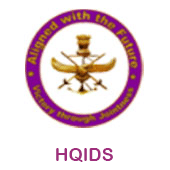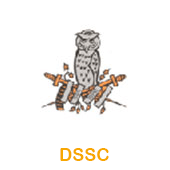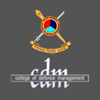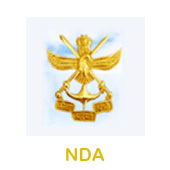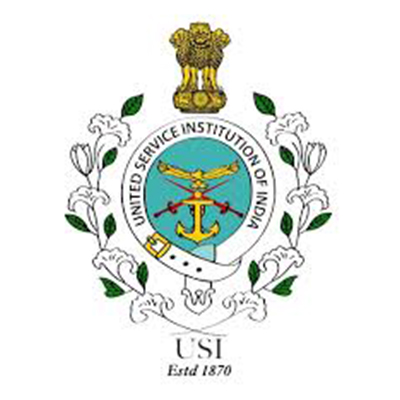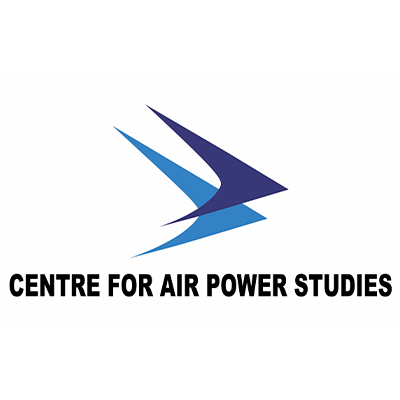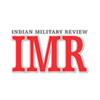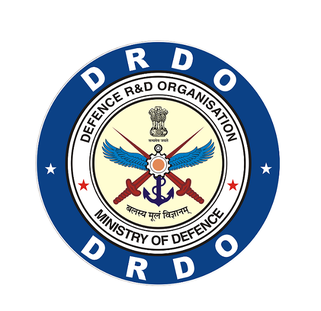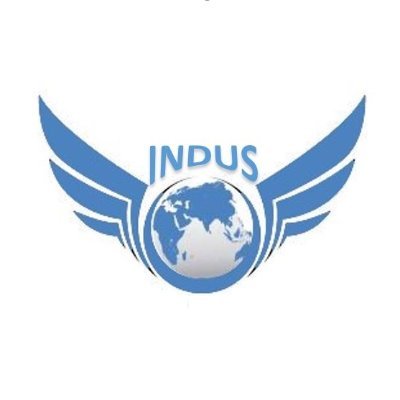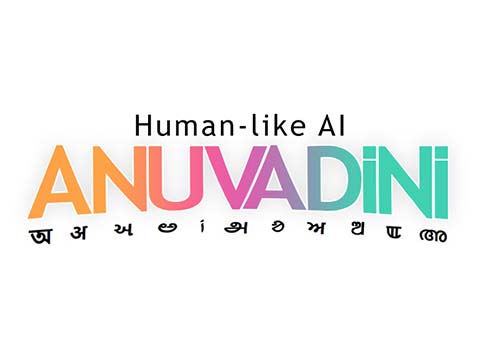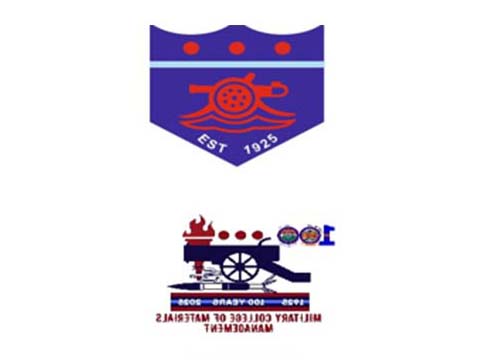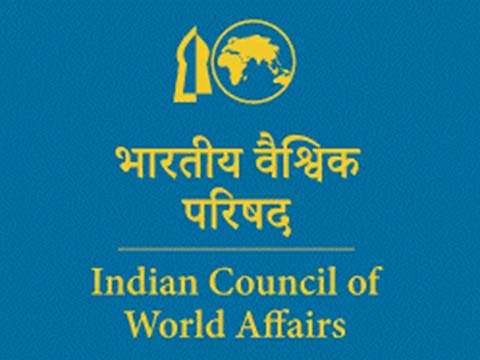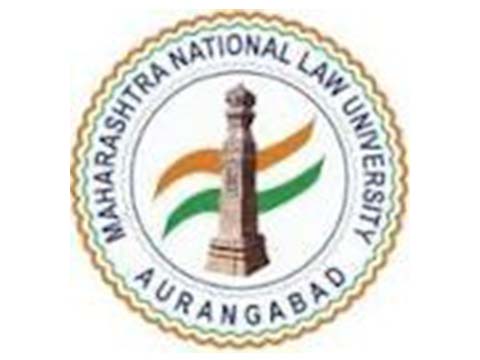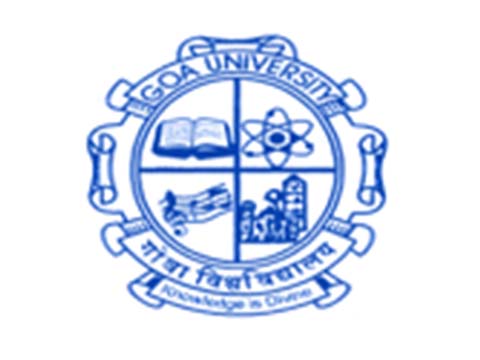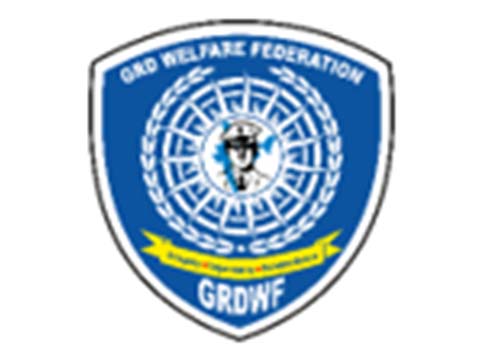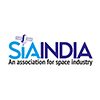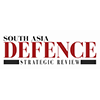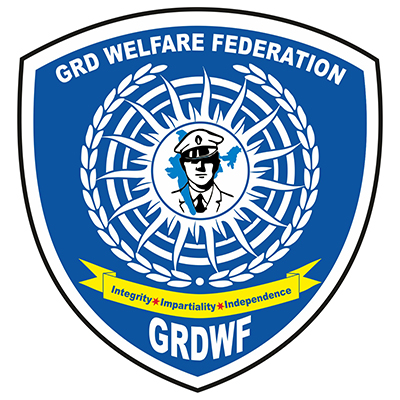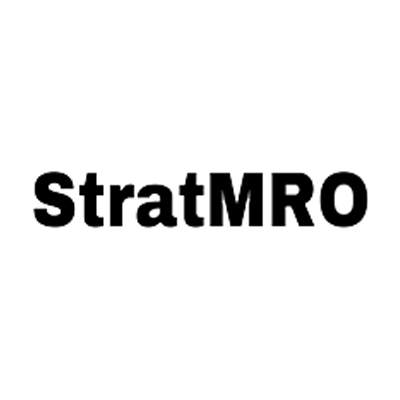Seminar | 06-Feb-2020
RTD PROCEEDINGS ON DMA BY SHRI R CHANDRASHEKHAR
1. A Round Table Discussion (RTD) on ‘Department of Military Affairs – Implications and Opportunities’ was conducted at HQ IDS Conference Facility at Purple Bay, Jodhpur Hostel on 30 Jan 2020. The RTD was attended by several senior serving officers of HQ IDS, the Services HQ and the Veteran Community. Discussions at the RTD were held under strict Chatham House Rules.
2. The RTD commenced with the opening remarks by Director CENJOWS who welcomed all attendees for taking time off their schedule to participate in this discussion to discuss such an important issue.
3. Opening Remarks by Lt Gen Vinod Bhatia, PVSM, AVSM, SM (Retd), Director CENJOWS. Welcoming all attendees, Director CENJOWS stated that the purpose of the RTD was to discuss an important issue. It has been for very long that the nation and its Armed Forces have been wanting a CDS. It is a general feeling that we are the ‘least joint military’. Actually, we have been very joint when we needed to be. The 1971 war, the Srilanka and the Maldives operations were examples of jointness. There have of course also been failures, such as 1962.
4. What however has been lacking have been formal structures. A feeling of being apologetic permeates in the social media and in discussions since the time the CDS and the creation of the DMA has been announced. Criticism should always be constructive with what is wrong being corrected and what is right being consolidated.
5. There are apprehensions about what the shape of the DMA would be is no basis for this. Several articles have been focussing merely on the peripherals and cosmetics. The issue was analysed at CENJOWS in some depth and we found that the CDS and the DMA far exceeds the expectations and goes beyond the recommendations of the various Committees on the subject.
6. For a nation to have it’s say in the geopolitical space, we need to be a military power and not just a military force as we are today. It is necessary for us to become a military power if we are to achieve our geo political goals and objectives. One of the reasons as to why we are not a military power is the military not having participation at the apex level decision-making. This this is what the DMA and the CDS stand to correct, which is why this will be gamechanger.
7. To expect the CDS or rh DMA to start functioning effectively from day one is not right. We need to give these new institutions time to evolve and for their structures to get accepted. While the structures of HQ IDS are exceedingly good, it somehow lacked a head. With the appointment of CDS and the formation of the DMA, we are now ‘keyed’ into the decision making process.
8. Presentation on ‘Department of Military Affairs – Implications and Opportunities’ by Shri R Chandrashekhar, Senior Fellow, CENJOWS. The presentation commenced with an extract of the Hon’ble PM’s Independence day Address announcing the Government’s decision to appoint a CDS. The indicators in that address are that the (then) existing approach was not perfect and there was need for the three Services to ‘march in step’ with good coordination with relevance to the ‘hopes and aspirations’ of the people’. Besides, there is an expectation from the move that ‘the three forces would get an effective leadership at the top level’ and that coordination should be in line with the changing war and security environment in the world.
9. The significance of this entirely unexpected announcement of creating the DMA is best considered in backdrop of the Services HQ being ‘Attached Offices’ of the Ministry of Defence with their role and functions not even finding mention in the AoB Rules 1961.Importantly, this decision conveys an intrinsic message that in the view of the Government, the Armed Forces can be trusted to ‘manage themselves’.
10. Subjects Allocated and Areas of work transferred to the DMA: The subjects allocated to the DMA can be grouped into two – those hitherto having been transferred from the DoD (Sers 1-5 of the allocated subjects) and the three ‘greenfield’ areas which come under the specific charter of the CDS, viz:-
(a) Promoting jointness in procurement, training and staffing of the Services through joint planning and integration of their requirements.
(b) Facilitation of restructuring of military commands for optimal utilisation of resources by bringing about jointness in operations, including through establishment of joint / theatre commands
(c) Promoting use of indigenous equipment by the Services.
11. Some of the major areas of workcontained in the subjects transferred from the DoD are:-
(a) Military Operations including CI Ops. Deployment of Forces, Border intelligence, Air Defence.
(b) Organisation and Manpower Planning, Pay and Allowances, Defence Services Regulations.
(c) Personnel Management – Postings, Promotions, Cadre Management and Reviews, Complaints, Discipline etc.
(d) Terms and Conditions of Service, Grant of PC, SSC etc., Recruitment, Policy, exams through UPSC for CDS/NDA & NA Examination/ lMA.
(e) Training Matters. CAT ‘A’ Estts, Field Firing Ranges.
(f) Budget Aspects, Appropriation/Accounts and Annual Training Grant, War and Peace system of accounting,
(g) Planning and procurement of ware withal through Revenue route.
(h) Development of communication / roads.
(j) Policy, provisioning and procurement of clothing (including special clothing) and special equipment.
(k) Maintenance of Platforms – Aircraft, Ships
(l) War Wastage Reserves.
12. Rationalising Work Areas. There are significant areas of work, some of which is contiguous to the work transferred to the DMA that has still been retained in the DOD. A ‘overlap’ in some overlap in functionsis also possible. In the interests of smooth functioning, the subjects to be dealt by both Departments need to be reviewed and areas of doubt resolved.
13. Unfamiliar Work Areas. From the position of Armed Forces Officers, there are some areas of work that are normally carried out at apex levels but which the Armed Forces are yet not entirely familiar. Some of these areas are:-
14. There is opportunity here for the Armed Forces to fight challenges in the ‘administrative’ zone with the same alacrity as in the ‘war’ zone.
15. Induction of Armed Forces Officers into the DMA. The transferred sections had in any case been dealing with the transferred subjectsThe military dimension in these is however lacking, which can be overcome by infusing Armed Forces personnel into these Sections and Divisions. The ‘greenfield’ areas, on the other hand, by their very nature, would require specialised professional knowledge and understanding possessed by Armed Forces Officers to carry out their work. Their induction into the DMA hence becomes necessary.
16. Appointments to be made with Approval of Competent Authority. The Transaction of Business Rules stipulate thatall Secretariat appointments of and above the rank of Joint Secretary in the Central Government are to be made with the Approval of the ACC. This would need to be strictly complied with to ensure that Armed Forces Officers posted at higher echelons of the DMA have the requisite Government authorisation to execute their functions.
17. Suggested Procedure for Induction. As a first step, it was suggested that work areas within sections of the DMA be ‘integrated’ by recasting into verticals (such as: Ops, Admin, Pers, Proc, Lgs and Works). The staffing in these verticals should be mix of Civilian & Military on functional basis. Appointments considered to be held entirely/ preferably by Armed Forces Officers be got approved by ACC to possess ‘QR’ with requisite Military experience. Separately, the aspect of Armed Forces Officers being included in Central Staffing Scheme also be considered to open the doors for their posting to other Ministries and Departments.
18. Adopting the Single File System. It was strongly urged that a Single file system be adopted between DMA and Services HQ which would make Service HQ to de facto ‘record keepers’ and ‘repositories of information on past cases and precedence’ and would promote an ‘open and collaborative’ working relationship rather than the mostly ‘secretive and confrontational’ one with the DoD.
19. Devolution of Authority and Powers to Services HQ. The GOM Report had emphasised on “decentralisation of decision-making” and on “delegation of powers to Services HQ wherever feasible”. The opportunity and time has come to do just that. This would make Services HQ de facto ‘extensions’ of the DMA and make redundant their status of ‘Attached Offices’. It would also ease pressure on DMA and the CDS for future-oriented planning.
20. Aligning the Services HQ Organisation and Structure in Line with DMA. The Organisation of the DMA is already along the set lines of a Government Department and would remain so. The time has come to consider Services HQ being restructured on similar lines. This would obliterate rough edges of issues like protocol and equivalence making functioning smooth. Importantly, it would move Services HQ to a ‘government department’ like structure that would help in their seamless transition to eventually becoming Government Departments.
21. Need for a Cadre of ‘Defence Administrators. Emphasising that Defence Administration’ has emerged as a specialised area of work and that neither Bureaucrats of Services under Central Staffing nor Military Officers can expect or hope to serve in the DMA or in Services HQ for period beyond stipulated tenures, it was suggested that the AFHQ Civil Service, entirely dedicated to the Ministry of Defence, should be recast, trained and utilised to provide a robust ‘backbone’ of administrators across the DMA and the Services HQ. The prospect of setting apart a ‘quota’ in the AFHQ Civil Service for SSC / retiring Services officers, which would help plough back their wealth of experience to the benefit of the Organisation.
22. Need for a ‘Culture Shift’. The induction of Armed Forces Officers into the apex government structures necessitates a change of culture to one of ‘decision making’ and ‘taking responsibility’ at apex levels. This is presently lacking amongst Armed Forces Officers and would need to be inculcated.
23. Adopting CS MOP in Services HQ. Being a Government Department, the DMA would require to follow Central Secretariat Manual of Office Procedure (CS MOP). It was suggested that the Services HQ should also migrate to following procedures in the CS MOP in lieu of the Whitehall system. To this end, training capsules on CS MOP be conducted in Training Estts and at the DHTI in Delhi.
24. The presentation ended on the note that the DMA has achieved for the Armed Forces much more than the highest realistic expectations. Several erstwhile threads of ‘bureaucratic control over the Armed Forces’ have loosened or even snapped and that several ‘pain points’ of functioning between MoD and Services HQ stand ‘resolved’. Bureaucratic ‘interference’ minimised.It is now up to the Armed Forces to ‘seize the opportunity’ and make DMA a success story.
25. Observations and Suggestions by Lt Gen Mukesh Sabharwal, PVSM, AVSM (Retd), Former Adjutant General:-
(a) Detailed Study on Several Aspects / Issues Needed. Taking off from the contents of the presentation, Gen Mukesh Sabharwal emphasised that notwithstanding that the DMA has come to be, and that due thought would have been given to issues, there is still need for a detailed study on several aspects. This is particularly so as it has a bearing for the future and it is necessary for the structure is strong. That is the need of the hour.
(b) Requirement for ‘Trust’. The foremost issue needs emphasis is the question of trust. Till now the system has been that proposals from the Services HQ were forwarded for approval to the MoD and there was elation when something was accepted and disappointment when not. There was very little information as to what went into the decision to approve or otherwise, the inputs that were available on the other side and taken into account while considering the proposal. This had been his experience while at both, the MO Dte and as AG. While the importance placed on the written word has its place, there are so many aspects, such as morale for instance, that are difficult to express or emphasise on paper. An integration and a functional ambience of collaboration would enhance the ‘trust’ factor. The DMA provides an opportunity to overcome this trust differential between the Services HQ and the Department processing the case for Government approval.
(c) Need to Induct Armed Forces Officers. On the aspect of manning, while the whole sections have been transferred along with their and their accumulated knowledge, these do not have a military dimension to understanding of the subjects. This is essential. That is why there is need to induct Armed Forces personnel into the DMA.
(d) Need for Diligence in Selection of Officers for Induction. Apart from the procedural aspects of how to bring about this induction, we also need to give deep thought within the Services HQ about thequality of the type of personnel – the first guys who get chosen- to be posted into the DMA. Coupled with this is the question of longevity of tenures. Terms and conditions of service may not allow for very long tenures. Hence a way has to be formed, maybe through harnessing veterans’ support etc to support the system. Subjects such as PS matters do need longer time to understand and here the Air Force and the Navy has done better than the Army.
(e) The Vertical of ESW. While we speak on the DMA, it is also time to consider the vertical of the ESW, its efficacy under the changed circumstances and whether the whole or a part of it can be brought under the DMA. It is difficult to imaginea Department set up for the welfare of Armed Forces Veterans functioning with not a single Armed Forces personnel.
(f) Integration of Certain Functions. On the ‘jointness’ part, there have been areas in which all three Services HQ have been trying to work together. The PPOC etc have been trying to bring about commonality. The Armed Forces Act would have to be followed up. Meanwhile, putting together some smaller subjects like Military Police, JAG’s Branches, even joint training should be taken up. Attempts have been made earlier, but the opportunity has now come to pursue this in a much more meaningful way.
(g) Implications for Forces Remaining ‘Apolitical’. On the issue of Parliament Questions, and Affidavits etc, earlier, the HQ put up drafts. However, now they will require to be signed and responsibility for these assumed. Importantly, while these were submitted at the draft stage, we were totally apolitical. The question now arises as to whether we can still be apolitical while approving these. Many a times draft replies to Parliament questions had been provided to the MoD but the Government Reply laid on the table in Parliament was something altogether different, because the government would read something altogether different. Such cultural changes needed training so that the required change in culture is brought in at an early stage and so that it gets internalised by the time officers reach higher ranks.
26. Observations and Suggestions by Maj Gen Umong Sethi, AVSM, VSM (Retd):-
(a) Need an ‘Office of Transition’. The sections and the work executed by them while under the DoD would now have to be redefined to fit into the overall canvas of work that has been allocated to the DMA. Such a transformation of work should also be effectedin a definite time span. An ‘Office of transition’ to draw out plans for restructuring these section and their effective manning by composite civil and military staff is necessary.
(b) Need for a Culture of Decision-making. Directors at Army HQ (as also Naval and Air HQ) are not decision makers. It is the PSOs. There is no preponderant culture amongst Services Officers for decision making. Their emphasis is on execution. Quoting an example drawn from his tenure in the MEA, he stressed that while in Services HQ it is ‘form’ that seems to have precedence over ‘substance’, in Ministerial work, it is always the latter. If the substance is good, form actually does not even matter. A cultural shift becomes necessary.
(c) Need for a Defence Administration Cadre. While supporting the need for tenures of reasonable length of tenures for Services Officers posted to the DMA, he stressed that there is substantial experience and talent that exists in the AFHQ Civil Service which should be utilised for the good of the organisation.
(d) Need for a Dept. of Technology Management. If the push for indigenisation of defence equipment is to be achieved as stated in the Charter of the DMA, there is need for due emphasis on development and induction of new technologies. The setting up of a ‘Department of Technology Management’, as a sub-vertical within the DMA, needs to be considered.
27. Observationsand Suggestions by Lt Gen Sanjiv Chachra, PVSM, AVSM, VSM (Retd), Former GOC-in-C, Northern Command and Former AFT:-
(a) Arrangements and Structures must Stand the Test of Judicial Scrutiny. Drawing upon his vast experience, both as an Army Commander as also Administrative Member of the Armed Forces Tribunal, the question that comes foremost to his mind is that of the new processes passing the muster of judicial scrutiny. The aspect of the system meeting the standards and benchmarks of judicial scrutiny is an imperative.
(b) Need for Teams to Streamline Procedures. The DMA is a new Organisation. It would take some time for it to learn the ropes and go along till it emerges into the organisation of the future we are all going to b proud of. To achieve that state, it is necessary to take carefully calibrated and firm steps to plan which there is need to form teams to streamline procedures. These teams should not be comprised of just Services Officers but also include Civilian bureaucrats.
(c) Integration of Services Amongst Themselves. Within the DMA, the most difficult process he foresees, which will step on judicial scrutiny, is integration between the Army, Navy and Air Force. Our procedures, promotion procedures, recruitment procedures are all different as are the office procedures, rank structure, and importantly, even laws are different. Even the Laws are different. An Armed Forces Act had been conceptualised in in 1967 and again thereafter in 1977 or so at which time it had even been submitted for consideration for CCS approval. However, the proposal did not get through as the Services themselves were not agreeable to the final draft. It is time to get that Armed Forces Act now. Although in practical terms, the wording of the three different acts as they exist, are by and large similar with well-known variations, it is time for a single Act to come in place. Here too, there is need for teams to study and formulate common rules by taking the good points from each Service and integrating them together. An example in this regard is of each Service having its own JAG. Besides these, there is in addition, also the D(Legal). All these four should all merge into one and come under the DMA. Otherwise what happens is that one of these entities seeks a legal scrutiny from the other and vice versa and the eventual scrutiny that actually comes up before the Court is an ambiguous statement, which, in many cases, gets set aside in the Court of law. All because there is no commonality of approach.Even in the final approval that comes back to the government, we have different yardsticks of implementation with one organisation being a little more liberal, while another more magnanimous and the third may be actually be more practical. We need to merge these entities to get a discoloured decision. Rushing to a court of law tosettle disputes between each other would actually throw the entire system out of balance and convey an impression that we are not able to manage ourselves.
28. Observations and Suggestions by Lt Gen Vinod Khandare, PVSM, AVSM, SM (Retd):-
(a) Need for a Tri-Services Act. Agreed that the judicial compliance (as brought out by Lt Gen S Chachra) was important. There was need for the Tri-Services Act as today there are cases of incidents which go unpunished just because of the personnel involved are from another Service.
(b) Need to Let the System Stabilise before Finding Faults. The DMA having come into existence very recently. It is too early a stage to make critical observations or predictions regarding it and the future course it would take. In his words ‘the baby is just born’ and we all desire for it to be a ‘healthy baby’ and no good is achieved by making tenuous observations on its apparent characteristics.
(c) Collation of Strengths. There are strengths on both sides, the military as also the civil. Thestrengths of the Civil side will become more and more visible in time to come and should be harnessed for the effective running of the DMA.
(d) Crucial Role of the HQ IDS. The HQIDS has an important role in supporting the CDS. Although a conventional war is not happening, we are already in a state of war. Hundreds of papers with threads of information come to the table of the CDS each day. These require to be analysed and processed. This is the role that the HQ IDS has been executing and will need to continue to do so.
(e) Need for Optimisation. The time has come for turf battles amongst the Services to stop. Giving the example of Military Cooperation, he mentioned of each of the three Services HQ havingits own Military Cooperation Division. There is also such a Division in the HQ IDS as also in the Ministry of Defence. Yet no Military cooperation worth the name was happening. It is time to amalgamate these groups into one which should be placed under the DM, to emphasise which he mentioned that in this regard, Pakistan was doing better than us.
(f) Single File System. Adopting the Single File system was most important. He has himself been functioning with the Single file system over the last one year and has found it perfect. The files have every possible historical record. He emphasised that when a problem is given, we start a research and half the time re-invent the wheel. More time is spent on research than in assessment. The work somebody has already done and available on file should be utilised.
(g) Training. On the aspect of training, this has absolute relevance at levels. Even in office work, training is required. Knowledge is required to formulate a policy but training is required to convert it into an action plan. Many knowledgeable people know what is where but when asked to make a plan get stuck on the ground factor. There are even today several training capsules that are run by the DHTI under CAO’s office and while in the MS Branch he had sent officers to several courses run there, which had been of tremendous use.
(h) The Union War Book. While the CS MOP would no doubt function very correctly at the level of the Ministry, he mentioned of another instrument that has been devised for the purpose of being leveraged to energise action – the Union War Book. The UWB shows very clearly which Ministry is supposed to do what in which eventuality – during peacetime and during war. The UWB had last been issued in 2009 and is undergoing revision which is a bit overdue. It is lying with the IDS who have sent it to the Ministries and people are looking at it. It is supposed to undergo a review every five years and a comprehensive review every ten years. It is signed by the Cabinet Secretary so it has the power that it needs. It is now the job of the IDS to energise the ministries to act on its revision. That has not happened. What IDS needs to do punch at their own weight is to make that happen. Several officers of other Ministries who he interacted with had been unaware of the existence of the Book. The point is that if we have issued it; then makes it happen otherwise what is the purpose. He added that the current system is binary – of either peace and war. This is not going to work. The UWB needs to cater to situations between the two. Otherwise Ministries would simply say that ‘war has not been declared’ and whenever that happens ‘we will fall in line’. He also stated that it is not that the Ministries cannot do it. Whether it be Ministries of Transport, CivilAviation, Railways – they all did respond to requirements such as when the entire lot of CRPF people had tobe pushed into the valley. The war was not declared, but the Ministries were very clear to energise the provisions when needed.
(j) The CDS Wearing Multiple Hats. One of the points here is about how many hats is the CDS going to wear. The CDS’ coming is a blessing. There will be enough chance for the Services Chiefs to declutter their minds and concentrate on what they are doing and have a thinking CDS who asks how are the wars likely to be fought ten years later.
(k) Funding Defence Research. An important area that the CDS must require to focus while he plans for future wars is the technology hunt and indicating areas in which the technology search would need to be done by the DRDO. Today DRDO does that in bits and pieces. Their functions need to be aligned to meet the requirements of the Armed Forces. There is a lot of effort that has to be done in terms of R&D which has to be invested with funds. The question arises as to where do these funds come from? From the Defence budget? Impossible. It is just not possible to divert these funds for research work that has to be done for future wars. They are not even enough for the current wars. But within the MOD there is a huge chunk of fund which is lying which can be utilised if it is properly utilised for research work. But who will give that decision? The CDS is the correct person who is potent enough to walk up to the Government and say that he is part of the Government and this is what the nation needs to do if we are to always remain as winners.
(l) Efficacy of Traditional Wisdom. A lot of people are happy to pick up from the West and benchmark our institutions and standards to western models. We have a lot of traditional wisdom. Let us not see as to whether we have followed an existing structure existing somewhere or have we followed a doctrine that has been written by someone else. Nobody gave a doctrine on the lines of which the Mahabharata or Ramayana wars were fought. The CDS and the DMA is something in the right direction and all of us have to make it succeed.
29. Closing Remarks by Lt Gen Vinod Bhatia, PVSM, AVSM, SM (Retd), Director CENJOWS. Director CENJOWS, in his closing remarks, stated that there was a need to stop being apologetic and show self-belief. The Armed Forces of India have always delivered. They delivered success in Kargil and can and will do so in making the DMA a success and expressed gratitude for the suggestions made in the course of discussions. The need for an Office of Transition and the aspect of judicial scrutiny of new founded structures.

